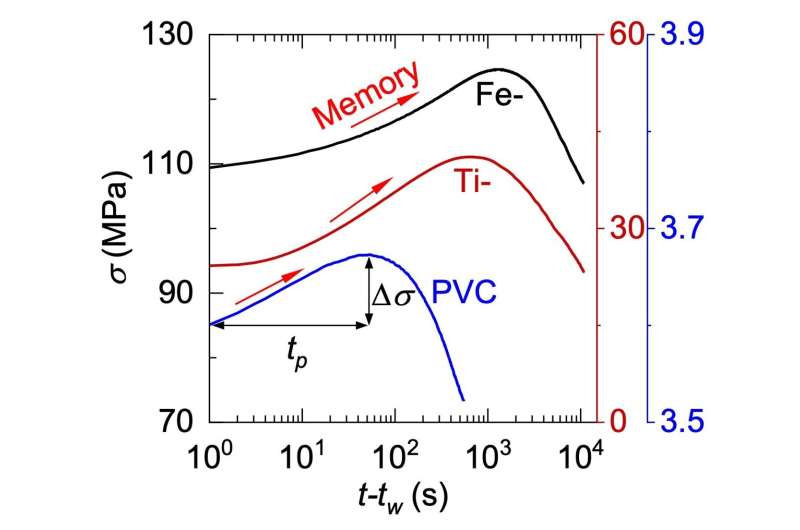This article has been reviewed according to Science X's editorial process and policies. Editors have highlighted the following attributes while ensuring the content's credibility:
fact-checked
peer-reviewed publication
trusted source
proofread
Researchers observe abnormal stress memory effect that restrains stress relaxation in glass

Prof. Wang Junqiang's team from the Ningbo Institute of Materials Technology and Engineering (NIMTE) of the Chinese Academy of Sciences has observed an abnormal stress memory effect in glass, which can be applied to restrain the stress relaxation and improve the stability of glass under constant strain loading.
The study was published in Nature Communications.
As non-equilibrium materials, glasses are widely used as structural materials in various engineering disciplines.
Under constant strain conditions, stress relaxation, i.e., a gradual reduction in stress, inevitably occurs. This significantly weakens the load-bearing capacity and stability of the material, thereby shortening its service life.
Inspired by the Kovacs memory effect induced by two-step annealing, the researchers applied two-step high-to-low strain stimulation to structural glasses.
During the stress-relaxation process, when a sequence of high strain to low strain is applied, the stress does not decrease gradually, but first increases and then decreases. This demonstrates the Kovacs-like stress memory effect in structural glasses.
The memory effect in glasses becomes stronger when under conditions of increased atomic collectivity, including larger applied strain, longer stimulation time in the first stage, as well as higher temperature.
In addition, the runback of reversible motions of small atoms was shown to be the essential mobilizing mechanism of the memory effect.
This work sheds light on the further development and advancement of stress relaxation resistance in various glasses.
More information: Yu Tong et al, Strain-driven Kovacs-like memory effect in glasses, Nature Communications (2023). DOI: 10.1038/s41467-023-44187-x
Journal information: Nature Communications
Provided by Chinese Academy of Sciences





















